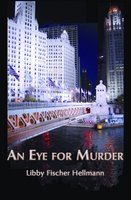Hey…it’s the holidays. Time to relax, chill, and not deal with anything too serious (like the execution of a Middle-Eastern dictator), right? So, going with the flow, I thought initially I would blog about New Years resolutions.
Yeah. Right. Not exciting.

Happily, my son, who’s home for the holidays, rented Season One of ”Weeds”
and I inhaled all 10 episodes in about as much time as it took someone we remember to claim that he never did.
In a word, I loved it! For those of you who don’t know, “Weeds” is a Showtime satire on Southern California life that features a suburban PTA Mom who also happens to be a drug dealer. Mary Louise Parker is terrific, and Elizabeth Perkins– well, tell me, can a character be an oxymoron?

Then I started to think about it. I’m addicted to
-- 24… more about that when Season 6 starts
-- The Shield… thanks to Jon and Ruth for tying me down while we mainlined episodes 1-4 of Season One. Thankfully, they gave me the rest of their stash to take home.

-- I hear Veronica Mars is worth looking into, and I still feel charitably toward Desperate Housewives and even Grey’s Anatomy, the doctor version of Sideways.
It would appear that TV has made strides since Newton Minow, who as chairman of the FCC, made this pronouncement:
“When television is bad, nothing is worse. I invite you to sit down in front of your television set when your station goes on the air and stay there without a book, magazine, newspaper, profit-and-loss sheet or rating book to distract you — and keep your eyes glued to that set until the station signs off. I can assure you that you will observe a vast wasteland."
Or has it?
There is a difference this time, though. I’m not watching on the air TV. For the most part, I watch DVDs of the entire season. Or two. I won't tie myself down to specific times, allow myself to force-fed with commercials, or let what’s left of my attention span be compromised by seven-minute spurts of “content.”
It’s a very different experience to throw the show onto your computer or a big plasma screen and lose yourself in ten or twenty or twenty-four uninterrupted episodes. I’ve spent several decadent weekends watching “24” and “The Shield” that way, and I just spent the better part of a day with “Weeds.”
The ability to revel in the characters, the action, the dialogue, even to re-watch certain scenes at your own discretion… wait a minute… I know this experience.. it reminds me something. Could it be it’s just like reading a novel? Dare I even make the comparison? Why not? It's the holidays.
Btw, does anyone know when Season Two of "Weeds" will be here?





